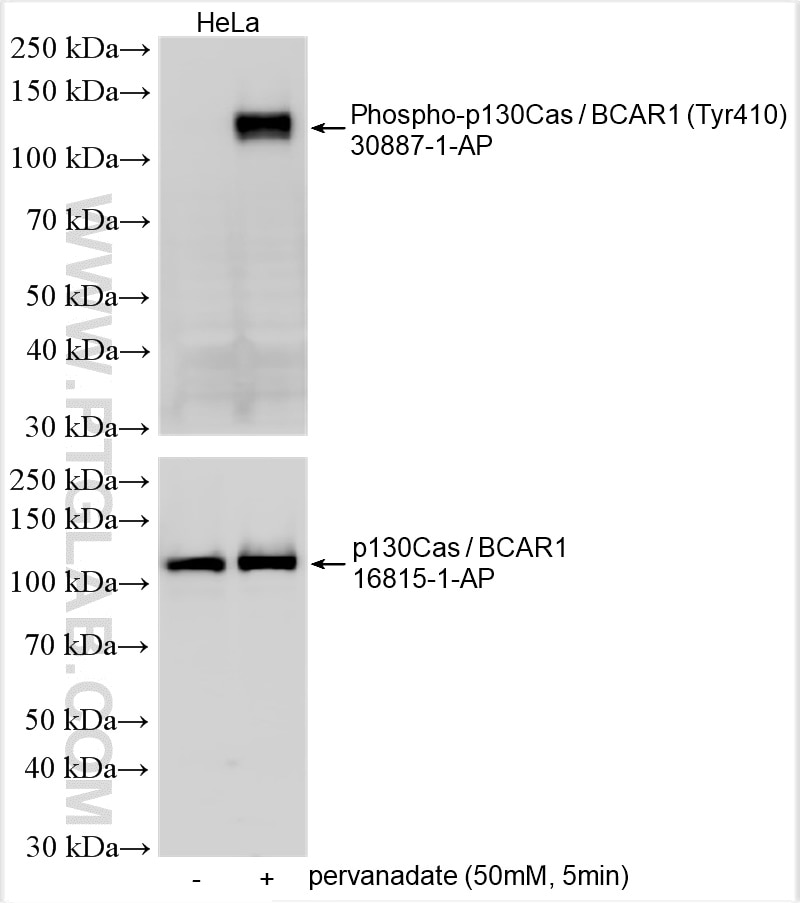Tested Applications
| Positive WB detected in | pervanadate treated HeLa cells |
Recommended dilution
| Application | Dilution |
|---|---|
| Western Blot (WB) | WB : 1:500-1:2000 |
| It is recommended that this reagent should be titrated in each testing system to obtain optimal results. | |
| Sample-dependent, Check data in validation data gallery. | |
Product Information
30887-1-AP targets Phospho-p130Cas / BCAR1 (Tyr410) in WB, ELISA applications and shows reactivity with Human samples.
| Tested Reactivity | Human |
| Host / Isotype | Rabbit / IgG |
| Class | Polyclonal |
| Type | Antibody |
| Immunogen | Peptide Predict reactive species |
| Full Name | breast cancer anti-estrogen resistance 1 |
| Calculated Molecular Weight | 870 aa, 93 kDa |
| Observed Molecular Weight | 130 kDa |
| GenBank Accession Number | BC062556 |
| Gene Symbol | BCAR1 |
| Gene ID (NCBI) | 9564 |
| RRID | AB_3669775 |
| Conjugate | Unconjugated |
| Form | Liquid |
| Purification Method | Antigen affinity purification |
| UNIPROT ID | P56945 |
| Storage Buffer | PBS with 0.02% sodium azide and 50% glycerol, pH 7.3. |
| Storage Conditions | Store at -20°C. Stable for one year after shipment. Aliquoting is unnecessary for -20oC storage. 20ul sizes contain 0.1% BSA. |
Background Information
p130Cas, encoded by the breast cancer anti-estrogen resistance 1 (BCAR1) gene, is a scaffold protein that integrates large multi-protein complexes in response to stimuli such as hormones, growth factors, and integrin engagement. Upon environmental signals, Src family members and focal adhesion kinase (FAK) phosphorylate the p130Cas substrate domain (SD). This active p130Cas can recruit adaptor proteins such as Crk and Nck to its phosphorylated SD. (PMID: 34830244)
Protocols
| Product Specific Protocols | |
|---|---|
| WB protocol for Phospho-p130Cas / BCAR1 (Tyr410) antibody 30887-1-AP | Download protocol |
| Standard Protocols | |
|---|---|
| Click here to view our Standard Protocols |



